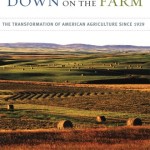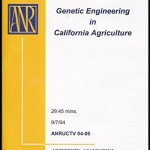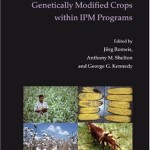
Each vehicle features die cast and plastic parts in addition to free rolling wheels and authentic John Deere decoration. A great gift idea for the John Deere fan on your list. Recommended for ages 3 and up.
Read More →
Each vehicle features die cast and plastic parts in addition to free rolling wheels and authentic John Deere decoration. A great gift idea for the John Deere fan on your list. Recommended for ages 3 and up.
Read More →
At a time when food is becoming increasingly scarce in many parts of the world and food prices are skyrocketing, no industry is more important than agriculture. Humans have been farming for thousands of years, and yet agriculture has undergone more fundamental changes in the past 80 years than in the previous several centuries. In 1900, 30 million American farmers tilled the soil or tended livestock; today there are fewer than 4.5 million farmers who feed a population four times larger than it was at the beginning of the century. Fifty years ago, the planet could not have sustained a population of 6.5 billion; now, commercial and industrial agriculture ensure that millions will not die from starvation. Farmers are able to feed an exponentially growing planet because the greatest industrial revolution in history has occurred in agriculture since 1929, with U.S. farmers leading the way. Productivity on American farms has increased tenfold, even as most small farmers and tenants have been forced to find other work. Today, only 300,000 farms produce approximately ninety percent of the total output, and overproduction, largely subsidized by government programs and policies, has become the hallmark of modern agriculture. A Revolution Down on the Farm: The Transformation of American Agriculture since 1929 charts the profound changes in farming that have occurred during author Paul K. Conkin’s lifetime. His personal experiences growing up on a small Tennessee farm complement compelling statistical data as he explores America’s vast agricultural transformation and considers its social, political, and economic consequences. He examines the history of American agriculture, showing how New Deal innovations evolved into convoluted commodity programs following World War II. Conkin assesses the skills, new technologies, and government policies that helped transform farming in America and suggests how new legislation might affect farming in decades to come. Although the increased production and mechanization of farming has been an economic success story for Americans, the costs are becoming increasingly apparent. Small farmers are put out of business when they cannot compete with giant, non-diversified corporate farms. Caged chickens and hogs in factory-like facilities or confined dairy cattle require massive amounts of chemicals and hormones ultimately ingested by consumers. Fertilizers, new organic chemicals, manure disposal, and genetically modified seeds have introduced environmental problems that are still being discovered. A Revolution Down on the Farm concludes with an evaluation of farming in the twenty-first century and a distinctive meditation on alternatives to our present large scale, mechanized, subsidized, and fossil fuel and chemically dependent system.
Read More →
This video explains the science behind genetic engineering, outlines its uses in food crops and animals, details where and why this technology is being used by California farmers, and examines the science-based concerns pertaining to the use of genetic engineering in agricultural production systems.
Read More →
Start helping your baby to breathe and sleep easier with this Baby Mucus Extractor, which simultaneously eliminates the potential risk of infecting your baby’s ears.
DrNaturalHealing Baby Mucus Extractor Benefits:
•This Baby Mucus Extractor uses two anti-backflow valves.
•Valves eliminate back-flow into your baby’s nose which commonly causes ear infections.
•Both actions of squeezing and releasing remove mucus congestion, giving you TWICE the effectiveness of other products.
•Easy to disassemble.
•Three parts for simple cleaning to ensure no hidden build-up of debris.
•Helps your baby breathe better, cry less, and sleep better.
•One directional sucking action ONLY pulls mucus into device and never back into your baby’s nose.
•Easily remove mucus from your baby’s nose with minimal discomfort.
•Can remove the viruses in mucus causing baby’s nasal blockage.
•Can reduce inflammation therefore reducing baby’s discomfort.
•Soft & safe silicone.
DR NATURAL HEALING, founded by Dr Liu, PhD and MD.
Dr. Liu has served as a Senior Project Leader at Abbot Laboratories and served as a Professor at the Midwest College of Oriental Medicine in Wisconsin, as well as Assistant Professor at Pennsylvania State University and Shadong University School of Medicine. His groundbreaking research in nasal irrigation stems from a realization that there was no drug or vaccine for treating or preventing a number of common respiratory infectious diseases. He pioneered the nasal irrigation technique as early as 1997, three years ahead of the current marketing leader in the field. With his extensive teaching experience and vast array of clinical and research skills, he has earned himself a strong reputation amongst students, colleagues and his patients.

Insect pests remain one of the main constraints to food and fiber production worldwide despite farmers deploying a range of techniques to protect their crops. Modern pest control is guided by the principles of integrated pest management (IPM) with pest resistant germplasm being an important part of the foundation. Since 1996, when the first genetically modified (GM) insect-resistant maize variety was commercialized in the USA, the area planted to insect-resistant GM varieties has grown dramatically, representing the fastest adoption rate of any agricultural technology in human history. The goal of our book is to provide an overview on the role insect-resistant GM plants play in different crop systems worldwide. We hope that the book will contribute to a more rational debate about the role GM crops can play in IPM for food and fiber production.
Read More →